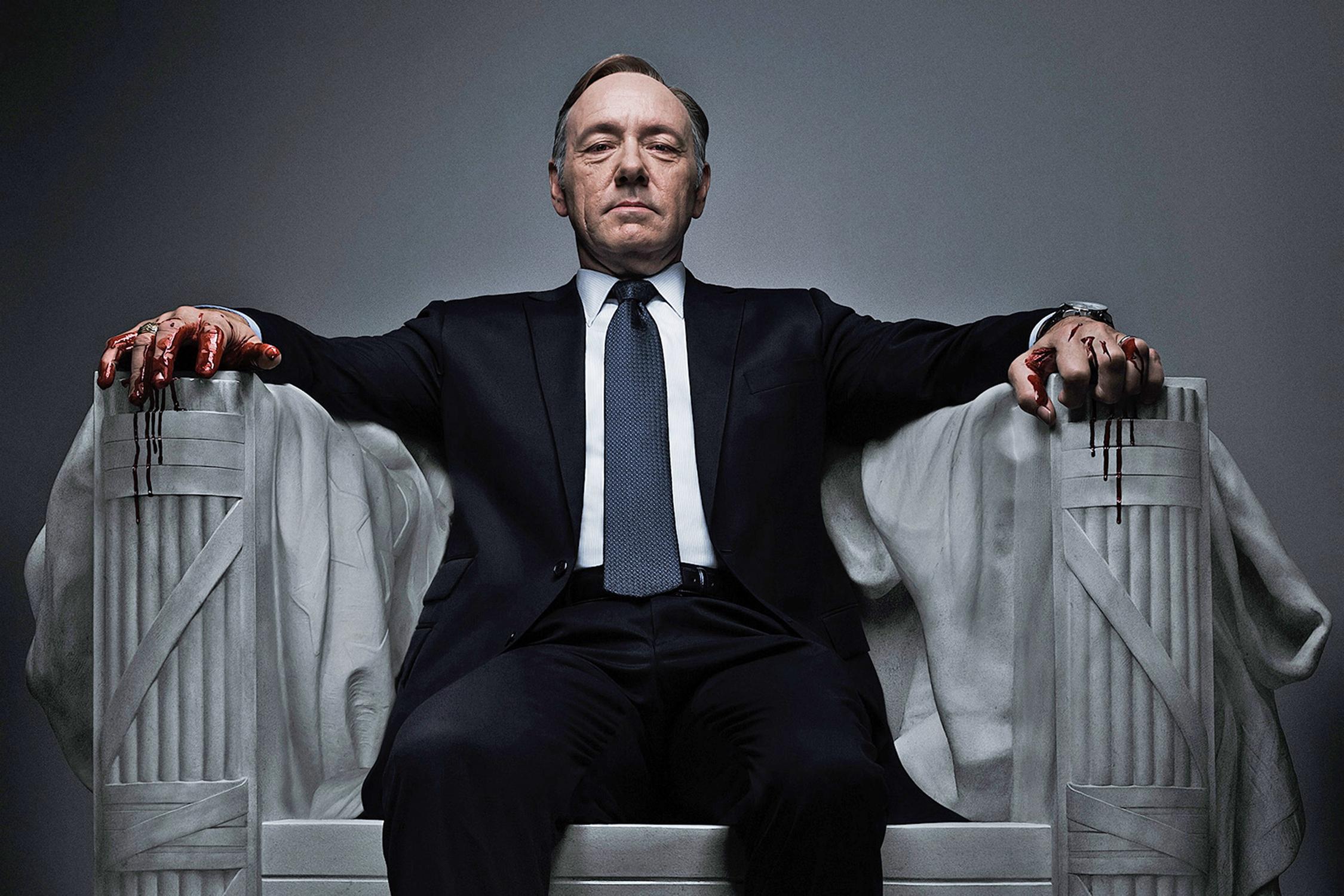The House of Cards folds
As the Weinstein effect continues to take hold, actors, writers and even our own politicians have been exposed and accused of sexual harassment and assault. One of the many people that have been accused, and among the most discussed, is previous Hollywood sweetheart Kevin Spacey. The accusations continue to rise amidst the announcement from Netflix that there will be no more Frank Underwood, the character that Spacey played. This is far from an isolated announcement, as Spacey is being edited out of his most recent film, All the Money in the World, and the future of two films currently in production, Gore and Billionaires Boy Club, look to be non-existent. But what are we, the public, supposed to make of this? Should we not be able to separate the art from the artist, or is this a tacit support, both economically and morally, of Spacey’s actions?
When allegations of assault and rape came to light about Gary Glitter and Jimmy Saville there was no one declaring that the BBC should remove them from television (although such a policy was later enacted for repeats of Top of the Pops, etc.). There are, however, a number of factors that differentiate their cases with that of Spacey’s. First, of course, is that the crimes allegedly committed by Spacey, as disgusting and horrendous as they are, pale in comparison to the actions of Saville and Glitter. Second, there appears to be a consensus among the public and members of the film and Hollywood industry as a whole that Spacey’s art is actually good, and removing him from this industry will result in a genuine loss of a great talent and artist.
Third, and finally, we have the problem that Spacey is still very much alive and not incarcerated – he is very much current in our present media. What these factors appear to have caused is a strange conjuring of a formula in all of our minds – it seems we must work through these factors and decide if Spacey’s alleged actions were monstrous enough to counteract his quality as an artist and how much it will interfere with our own viewing habits. This is not an equation I particularly want to work out.
Perhaps they are disgusted, but they were also happy to go along with using Spacey before these allegations came to light
This is of course very easy for me to say, but quite a lot harder to enforce. Do his past works count? When watching an old copy of American Beauty that was purchased years ago I am no longer financially contributing to Spacey’s career, however I am also enlisting a degree of tolerance so that I am able to watch a film I once very much enjoyed. Of course, I now look over the film with a sense of grim discomfort, though I think over all of Spacey’s work with that. I have therefore placed myself in a very convenient position where I don’t have to worry about the issue too much. Spacey’s presence in films makes me uneasy, therefore I simply cannot enjoy them and I can easily boycott them. But with the boycott of these films also comes the boycott of the many actors and performers that have great artistic importance across the films that Spacey may have happened to have starred in, and this is an issue that will hit House of Cards.
This isn’t too difficult when considering the likes of Robin Wright who, after an extremely strong performance in Blade Runner 2049, looks to have a promising and artistically important future. But what of the many actors that hold House of Cards, and the other films and shows in which Spacey has starred, that host these up as the high point in their careers – should I watch these shows to appreciate them? The simple, and perhaps unhelpful answer is no, I probably won’t.
I struggle to see a future at all for the now tainted House of Cards
Finally, I can’t help but feel that there is another angle to this story that has been overlooked. Netflix, and the other companies that have removed Spacey from their art, have received praise for refusing to tolerate the actions Spacey was accused of committing. Yet, it was well known, like with Weinstein, within the industry that Spacey had committed these acts. Perhaps they are disgusted, but they were also happy to go along with using Spacey before these allegations came to light. Spacey is no longer an economically lucrative option, of course they would cut him loose and accept all the acclaim for doing so. There have been murmurs that the House of Cards writers are considering writing the final season without Spacey, so they may very well get all the praise for their moral actions, without any repercussions for losing Spacey. I can’t say that Netflix were absolutely aware of what Spacey had done, but with reports from the set that Spacey created extremely hostile working environments especially among young men, it seems impossible to me that Spacey’s behaviour went totally unnoticed.
There would be those who, through the value they place on artistic integrity or their lack of concern about real-life context, would be able to watch a House of Cards with Spacey present. But that is not a large enough group to make this a viable market for Netflix. I join the majority of those who would not endure the discomfort of watching this series, even in the face of the artistic cost. I refuse to think up the equation of morality, in which Spacey’s victims become mere numbers and symbols, and where any action can be tolerated as long as it doesn’t inconvenience my viewing habits. I struggle to see a future at all for the now tainted House of Cards, and there exists no future at all for Kevin Spacey.

Comments